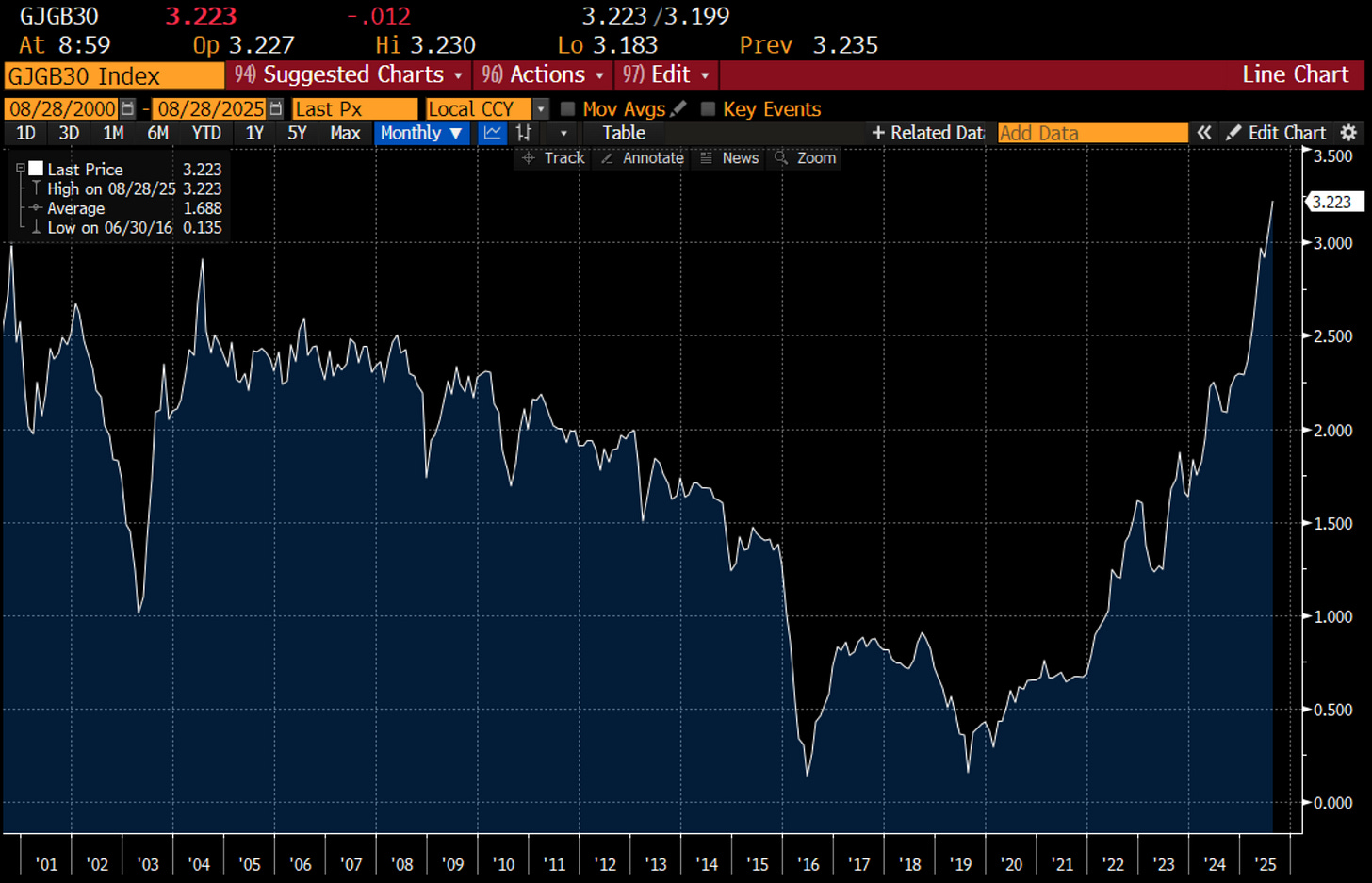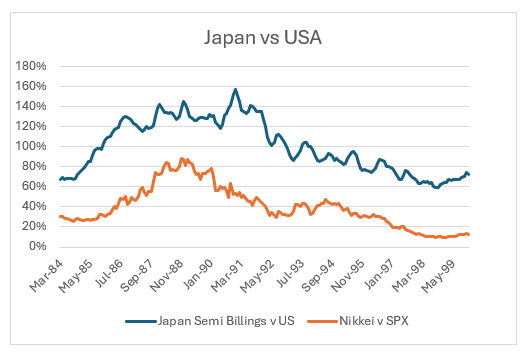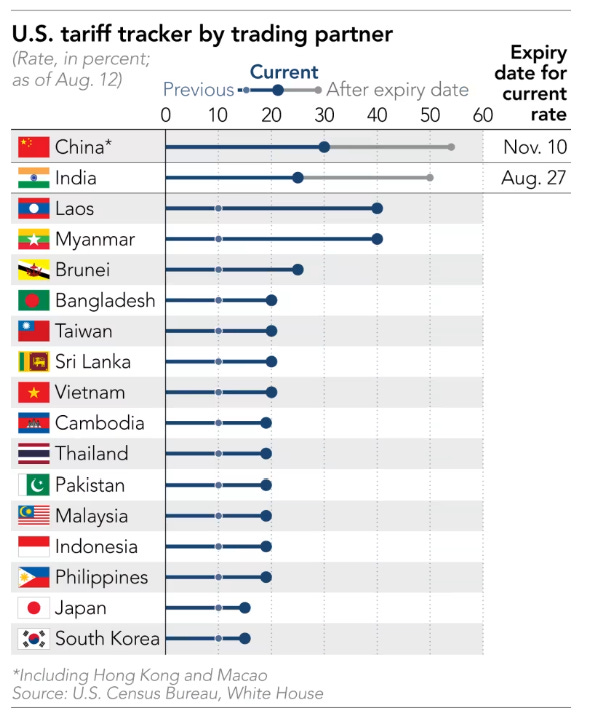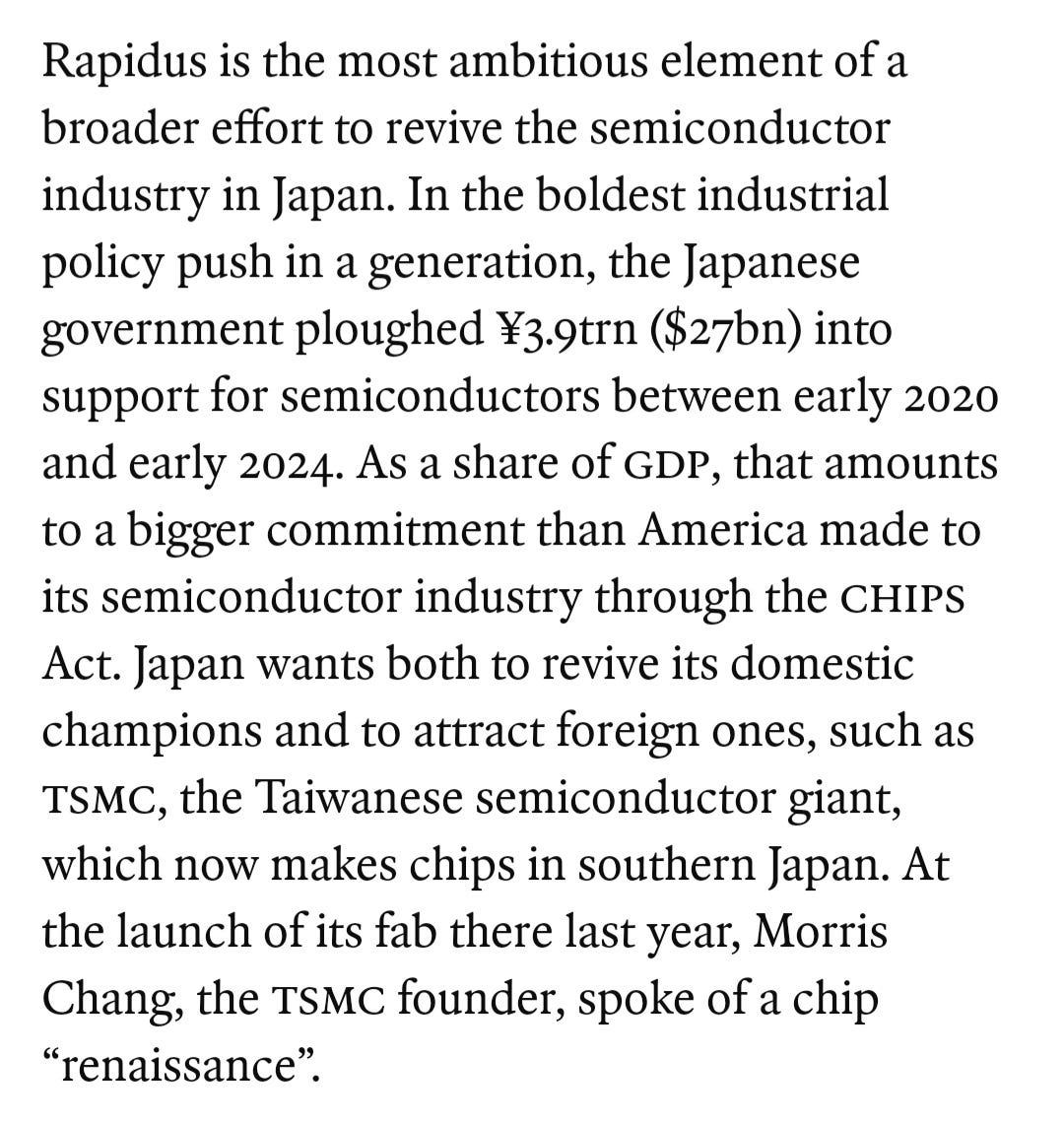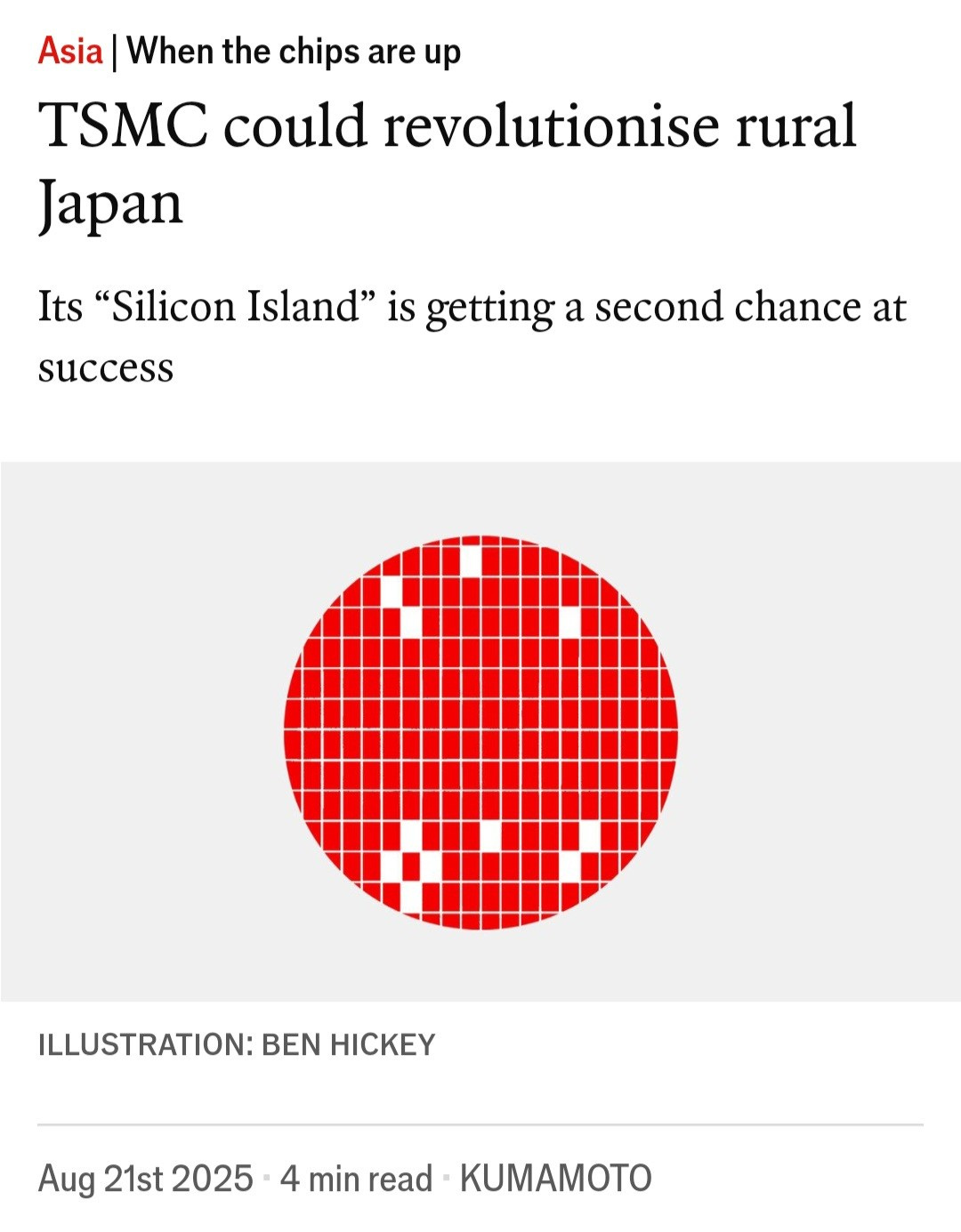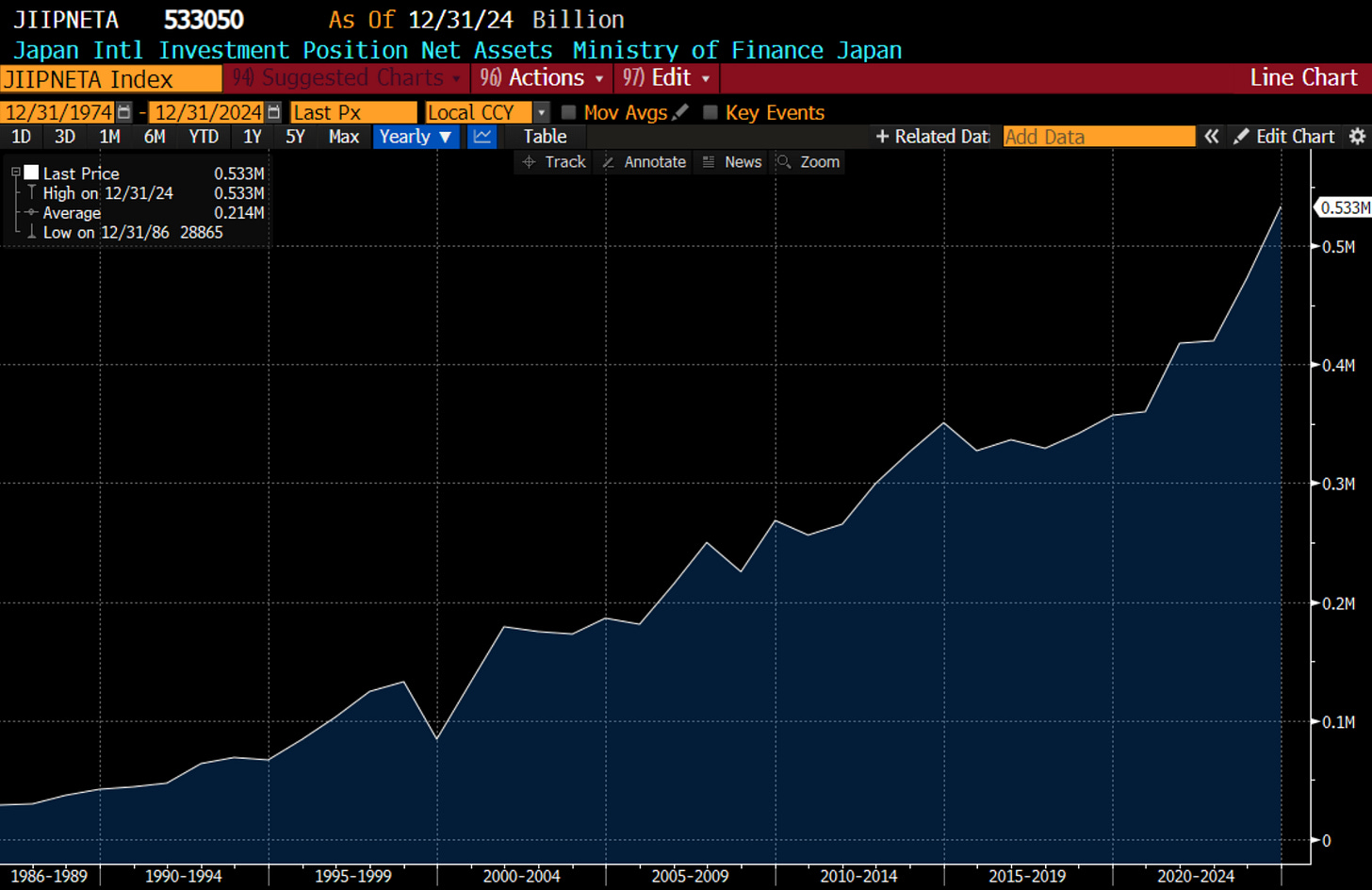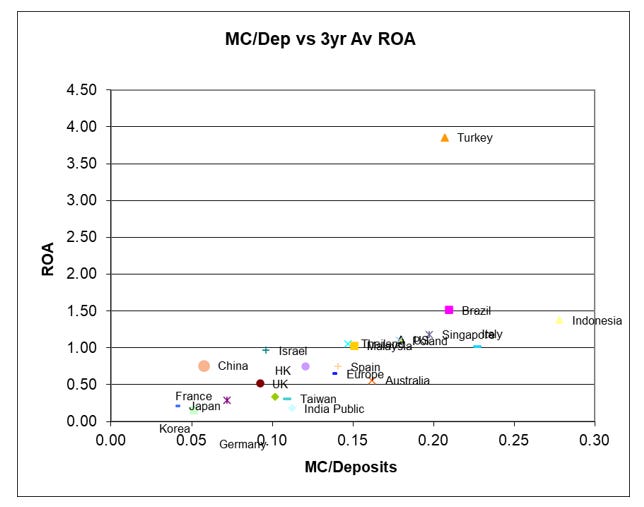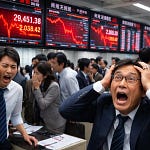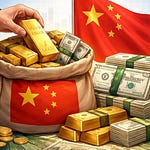Economists really don’t like thinking about politics. If forced to choose between an economic reason and a political reason for something to happen, they will always choose the economic reason. I used to be exclusively “economic” in my thinking, but around 2021 I realised that politics was a far bigger driver. I have tried various different political ideas to make sense of the world, and give a framework for investing with various degrees of success. When I started to think about politics rather than economics, I started to wonder if Japan’s lost decades were driven by a political choice rather than an economic choice. That is in the 1980s trade fiction with the US was rising, and Japan remembering how conflict with the US turned out last time, “decided” to enter a period of weakness. I liked this theory for many reasons, as it would explain the very different tendencies in Yen and JGBs we saw from the rest of the world. While everyone else moved with the economic cycle, Japan chose to lean the other way. Its a nice theory - but for it to have any meaning, it would need to explain why the Yen is no longer strong, and why 30 year JGB yield keep rising.
As we have seen with the AI boom the ability to create and access to cutting edge semiconductor is the key to modern economic dominance. Back in the 1980s Japanese dominance saw them capture fifty percent of global market share. Using semiconductor billing data, we can see that Japanese semiconductor dominance coincided with Nikkei dominance.
What went wrong for Japan? Under American pressure they agreed in 1986 to increase imports of US semiconductors, and to keep prices high in the US. This was good for profitability in the short run, but threatened market share in the long run. With the collapse of Soviet Union in 1989, investing into other parts of Asia became far more possible - which saw the rise of various Asian Tigers. Japanese investment was instrumental in the rise of Asian semiconductor industry. Korea and Taiwan, both former colonies of Japan, have become dominant chip players.
In other words two political changes led to the decline of Japanese semiconductor industry and the rise of Asian semiconductor manufacturers. One was the rising trade tensions with the US and the second was the opening up of Asia after the collapse of the Soviet Union. Japan had become expensive, and geopolitics and economics encouraged Japanese corporates to invest overseas. First in the Asian tigers and then in China. When your most successful corporates choose not to invest locally, then is there any surprise you suffer economic decline? But using a similar analysis, political changes are now favouring Japan again. China is now perceived as the bigger threat to the US and Taiwan is seen as too risky to have nearly all high end semi production. One big advantage is the Yen has materially against the Taiwanese dollar.
Japan also faces much favourable tariff regime relative to China and most of Asia ( of course subject to the whims of the White House).
From a geopolitical stand point investing into Japan makes sense for Japanese corporates again. And just like in the 1970s joint government and corporate cooperation is beginning to take hold.
As an article in this week’s Economist highlights, residents of Kyushu can’t believe the wages that TSMC are offering for cafeteria staff (USD20 an hour). Last time I was in Japan most unskilled jobs were being offer a rate of 1000 Yen (USD 7 an hour). Rising wages is very bullish.
What does this all mean? Well in 1990, Japan was expensive and a geopolitical rival to the US. For reasons easy to understand, Japan chose to become non-threatening to the US (and for easy reasons to understand, China is doing the opposite). They invested overseas, and often licenced a lot of technology to Taiwanese and Korean companies. Japan Inc success became a much more palatable Asia Inc success. But now, China has become the main threat, and the geopolitics of Taiwan being the only producer of high end chips has changed the logic again. Now the US wants Japan to be a competitor to Taiwan and to China. And with such low costs, and great infrastructure Japan is an easy sell. We have become so accustomed to Japan being a big investor overseas - what happens when those flows reverse? It is currently has the largest net international investment position surplus in the world. Something that started to surge from 1990 - unsurprisingly.
Economic analysis suggests Japan is dead. On my preferred measure of market capitalisation to deposits, domestic Japanese banks are priced for no growth and low return on assets. This seems wrong to me.
Geopolitical and industry analysis suggest Japan is at a huge turning point. What is even more exciting is so many domestic stocks still trade at below book. This looks wrong to me. I am uncontrollably bullish on Japan.



